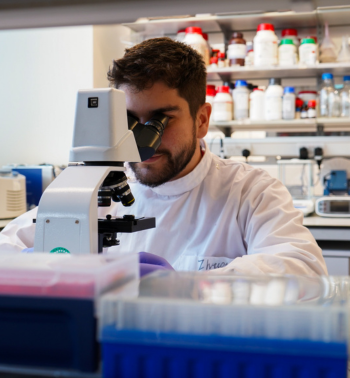30 September 2025
A study into the impact of social deprivation on outcomes for patients with infective endocarditis led by Dr Samuel Watson, NIHR Cardiology Academic Clinical Fellow, and Prof Rafal Dworakowski, Consultant Cardiologist and Honorary Senior Clinical Lecturer, has been published in EHJ Quality of Care & Clinical Outcomes. This was a first for examining how social deprivation has influenced outcomes for patients living with this heart condition in the UK. KHP News has spoken with Dr Samuel Watson to find out more about the study and what the next steps might be.
The aim of our study into social deprivation and infective endocarditis
We already know that social deprivation has a huge impact on outcomes for patients living with cardiovascular disease. In this study we wanted to find out how social deprivation impacts patients with infective endocarditis - a condition where there is an infection within the heart.
To answer this question, we formed the London Endocarditis Research Network as a collaboration between King’s College London NHS Foundation Trust, Guy’s and St Thomas' NHS Foundation Trust and Barts Health NHS Trust. The Network allowed us to pull more than 1,700 patients together over a 10-year basis, to understand the impact of social deprivation. We used the UK index of multiple deprivation, which assesses a person’s relative deprivation from their post code.
What were the findings of this study?
The main finding of the study was that the most socially deprived patients had a higher mortality at both 30 days and one year even within the NHS, a universal healthcare system.
We also found that patients from high social deprivation backgrounds were:
- More likely to be female, from self-reported minority racial groups and have more complex medical backgrounds;
- More likely to have high inflammatory markers, despite infections being caused by the same types of organisms;
- Less likely to undergo surgery.
Over the years, stepwise improvements in treatment and diagnostics have occurred across the NHS to improve care in infective endocarditis. However, our data demonstrates that it remains a deadly condition.
Good outcomes are strongly associated with surgery, so we need to understand why the most deprived patients are not operated on as frequently. It's a difficult question to answer from this retrospective study but there were two main indications that came from our results:
- Patients from the more socially deprived group were more likely to have comorbidities, which can make surgery riskier.
- Patients from the more socially deprived group had higher inflammatory markers on admission, which could suggest more advanced infections or delayed presentation.
To test these observations we would need to run a prospective study - collecting data in real time as patients come into the hospital with infective endocarditis. A prospective study would give a more detailed assessment of an individual's social deprivation status because our results would be unique to each patient.
The cohort we've created is one of the largest cohort of patients from a single region. We hope to use this data to identify high risk individuals and groups. We also hope to develop new risk scores to better calculate a patient's individual risk.
How has working in partnership helped this study?
The structure of KHP is invaluable to research studies like this. The partnership allows easier collaboration across big institutions. It helps with creating large data sets, recruiting patients, and makes studies more powerful and impactful. I’m also involved in translational research using human tissue samples and being able to work across different KHP sites has been really helpful.
What are your hopes for the future?
In terms of infective endocarditis, earlier diagnosis and earlier intervention will really benefit our patients. One of the problems is there is often an insidious onset of symptoms and it can take a while to make the diagnosis. With better stratification of patients and with the support of AI tools we could make a diagnosis much earlier in a patient's journey. Ultimately this is one of the solutions needed to improve outcomes and something we are hoping to work on.
This study reiterates that social deprivation is bad for people's health. My hope is that this study can raise more awareness because to tackle social deprivation, we need political goodwill, public health campaigns, and a collaborative effort, it requires everyone, not just healthcare professionals.
Find out more about the work of KHP Cardiovascular and Respiratory Partnership.





